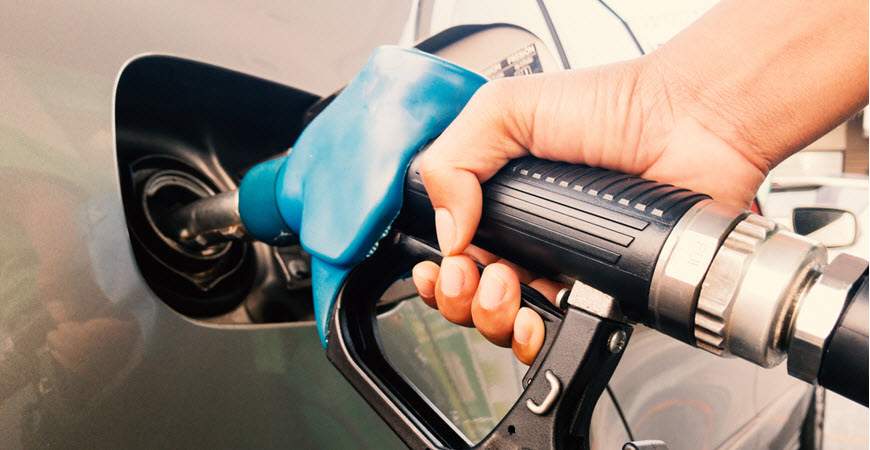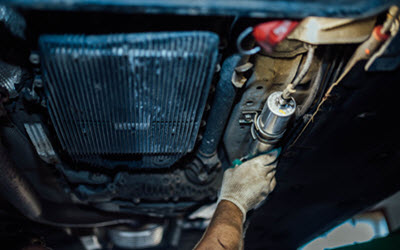- May 25, 2023
- By Cerebro Marketing
- In Volkswagen Repair
- Tags Volkswagen Increased Fuel Consumption, Volkswagen Increased Fuel Consumption Fix, Volkswagen Increased Fuel Consumption Reasons
- 185
- 0

As a proud owner of a Volkswagen, you may have noticed an unexpected rise in fuel consumption in your car or SUV. This increase can be concerning, especially considering Volkswagen’s reputation for producing fuel-efficient cars. There are many possible reasons behind heightened fuel consumption in Volkswagens, so we’re offering insights and potential solutions for owners experiencing this issue.
Aggressive driving, such as rapid acceleration, frequent braking, and excessive speeding, can significantly impact fuel consumption. These behaviors lead to higher energy demands, forcing the engine to work harder and consume more fuel.
Neglected maintenance tasks can contribute to increased fuel consumption. Dirty air filters restrict airflow, causing the engine to burn more fuel. Worn-out spark plugs can result in inefficient combustion, leading to higher fuel usage. Regular maintenance, including air filter replacements and spark plug changes, are essential to optimize fuel efficiency.
Problems within the fuel system can cause increased fuel consumption. Fuel leaks result in fuel wastage and inefficient combustion. Clogged fuel injectors disrupt the fuel spray pattern, affecting combustion efficiency. Malfunctioning fuel pressure regulators may cause an improper fuel-to-air ratio. These issues can lead to decreased fuel efficiency. It is important to have the fuel system inspected and repaired by a qualified technician if necessary.
Various engine-related problems can contribute to higher fuel consumption. A malfunctioning oxygen sensor may incorrectly measure the oxygen levels in the exhaust, leading to an imbalanced fuel mixture. A faulty mass airflow sensor can cause inaccurate readings, resulting in improper fuel delivery. A worn-out catalytic converter can hinder exhaust flow, reducing engine efficiency. Prompt diagnosis and repair of engine-related issues are vital to restoring fuel efficiency.
Improper tire pressure can affect fuel consumption. Underinflated tires increase rolling resistance, requiring more power from the engine to move the vehicle. This leads to higher fuel consumption. Regularly check and maintain the recommended tire pressure to ensure optimal fuel efficiency.
Certain environmental conditions can impact fuel consumption. Heavy traffic and frequent stop-and-go situations increase fuel consumption due to constant acceleration and deceleration. Driving in hilly terrain requires more power from the engine, leading to increased fuel usage. Extreme temperatures and strong headwinds also affect aerodynamics, resulting in higher fuel consumption. While these factors are beyond an owner’s control, being mindful of their impact can help manage fuel consumption expectations.
Adopting fuel-efficient driving habits can significantly help manage fuel consumption. Avoid aggressive driving behaviors like rapid acceleration, sudden braking, and excessive speeding. Instead, maintain a steady speed, anticipate traffic flow, and use cruise control when appropriate. Smooth acceleration and deceleration reduce fuel consumption and promote better fuel efficiency.
Excess weight in your vehicle can lead to increased fuel consumption. Remove unnecessary items from your Volkswagen trunk area to reduce weight. Carrying around extra weight places a greater load on the engine, resulting in higher fuel consumption. Traveling lighter can help improve fuel efficiency.
Volkswagen cars and SUVs are designed to operate with specific fuel requirements. Always use the recommended fuel grade and quality specified in your owner’s manual.
Stay on top of your Volkswagen’s maintenance schedule to ensure optimal fuel efficiency. Regularly check and replace air filters, spark plugs, and fuel filters as recommended by the manufacturer. Keep the tires properly inflated according to the recommended pressure levels. Routine maintenance tasks such as oil changes, wheel alignments, and engine tune-ups can also contribute to better fuel economy. By spending a small amount on routine upkeep, it will save you money in the long run.
At Paladin Automotive, we offer reliable and  professional solutions for all your Volkswagen-related concerns. If you’re experiencing any issues with your Volkswagen, whether it’s increased fuel consumption, engine problems, or other maintenance concerns, we are here to help. We are located in Las Vegas, and we serve residents in Spring Valley, Summerlin, and Las Vegas, NV.
professional solutions for all your Volkswagen-related concerns. If you’re experiencing any issues with your Volkswagen, whether it’s increased fuel consumption, engine problems, or other maintenance concerns, we are here to help. We are located in Las Vegas, and we serve residents in Spring Valley, Summerlin, and Las Vegas, NV.
With our team of skilled technicians and commitment to customer satisfaction, we will ensure that your Volkswagen runs smoothly and efficiently. Book an appointment with us today and experience reliable and professional automotive care for your Volkswagen.


